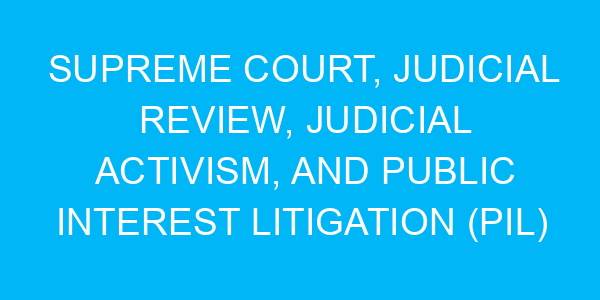11. Who can file a PIL in India?
a) Only individuals directly affected by a violation of rights
b) Only registered NGOs
c) Any person acting in the public interest
d) Only government officials
12. The power of the Supreme Court to issue writs is derived from:
a) Article 19 of the Indian Constitution
b) Article 21 of the Indian Constitution
c) Article 32 of the Indian Constitution
d) Article 44 of the Indian Constitution
13. The Supreme Court has the power to transfer cases from one state High Court to another. True or False?
a) True
b) False
14. Which case led to the landmark judgment on the Right to Privacy in India?
a) Golaknath v. State of Punjab
b) Maneka Gandhi v. Union of India
c) K.S. Puttaswamy v. Union of India
d) S.R. Bommai v. Union of India
15. Which of the following is NOT a power of the Supreme Court?
a) Appointing judges to the High Courts
b) Contempt of court proceedings
c) Granting bail in criminal cases
d) Interpreting the Constitution



